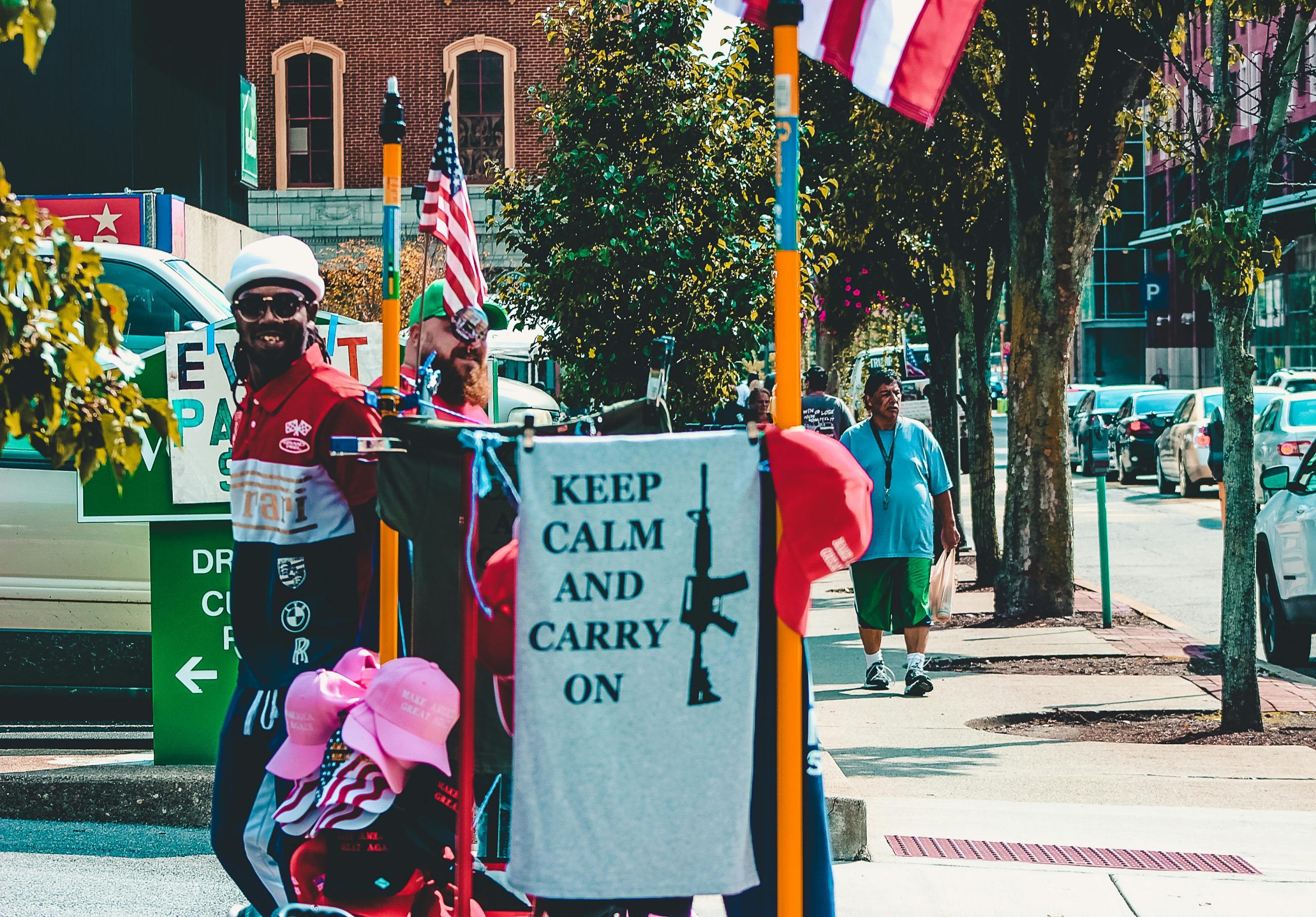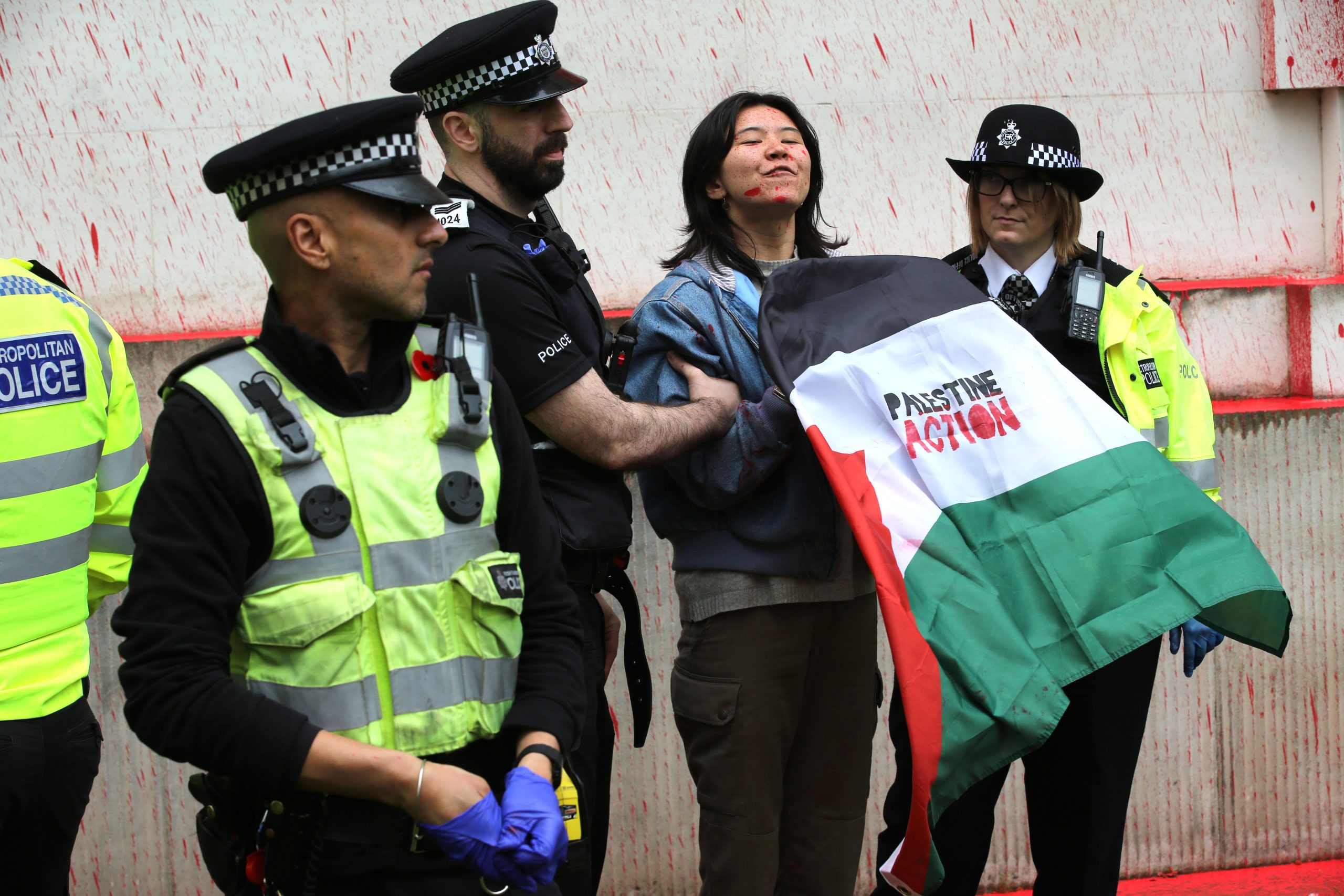It took nearly two years but just one action for Extinction Rebellion to make it onto the Tories’ prestigious “so dangerous they should be illegal” list – not co-incidentally it was the first time they’d truly challenged the elites.
Freedom has tried to support XR when it’s on the wrong end of a police stick, but we haven’t always been kind to them, especially their self-declared “leadership”, which has all too often made bafflingly silly decisions and statements running directly counter to the experiences which many activists have built up over years of struggle.
When news broke that XR activists had successfully shut down the Murdoch Press on Saturday however the general response was “XR did that? Good on them!” Their blockade had all the hallmarks of the best of direct action. Pick a ruling class target that counts, in a place where they’re weak, and seriously disrupt business as usual.
This is a completely different beast from gluing yourself to a bank branch for the afternoon, or even sitting on a bridge getting yourself arrested to “fill the jails.” It’s a direct challenge to the operations of one of the most powerful and hegemonic media tycoons in Britain – and the proof can be found in wall-to-wall coverage wailing about “threats to a free press” (as though these bloated hegemons who destroyed or bought out all diversity in the media decades ago have a leg to stand on). And what’s more it lays out a possibility which the ruling classes are absolutely desperate to keep off the table – that similar could happen anywhere, and may be impossible to keep a lid on.
The reason that the Tories are considering criminalising membership of XR in the wake of the blockade is the same one that powered their U-turns on A-levels and evictions in August and historically, their repression of green and animal rights activism in the 1990s (See Black Flag 237, p16). They are absolutely terrified of a situation where effective direct action loses its mystique and lodges as a possibility in the public mind, in a situation where they have few economic levers left to pull and far less police muscle than they’d like to admit.
Reigning with funhouse mirrors
Repression, and the management of an unhappy populace in a time of crisis in such a way as to avoid serious unrest, relies heavily on the theory of critical mass, more specifically on how to avoid it happening.
Let’s take the example of a beach, locked down due to Covid. Ten thousand people might want to go there on a weekend, and perhaps the government is trying to make sure they don’t. Your police presence wouldn’t be nearly enough on a long stretch of beach to stop these people en masse, especially once they’re sat down and unwilling to be moved. You’d have an uncontrollable angry mob on your hands, and a big mess to clean up.
So how do you ensure compliance? First, you put out a loud warning that the beach is very much closed. Second you post officers at common entrances before people arrive and turn the first people away as they show up. Third, if anyone tries to be brave and flout the new rule you make an example out of them. This turns a massed crowd into isolated groups, discourages any attempt at heroics and makes the mass much easier to control with your handful of cops.
Britain as a whole works in a very similar fashion. There are less than 124,000 officers in Britain today, many of which are either at a desk or on holiday at any one time. Their functional operating force in the event of mass unrest, and especially dispersed unrest (ie. not tied to plodding around central London in an easily-corralled setting), is likely to be well below 100,000, or a ratio of one cop to 660 people.
Those numbers have been enough to guard the gates to the beach for decades, bar a wobble in 2011 when the riots over Mark Duggan highlighted exactly how vulnerable to mass unrest the state was (and similarly, led to some outrageous exemplary sentencing). What the Tories’ policies have all been about this summer is avoiding the nightmare scenario of beachgoers realising that there’s not enough cops to keep them all out.
The bottom line is riots
There was a certain amount of talk in anarchist circles, in the early days of Covid, about the probabilities of Summer riots breaking out as a result of the horror show that was about to unfold.
Given events in the US these weren’t unfounded ideas and the elements seemed to be there for Britain as well. Mass enforced unemployment and a landlord class desperate to keep putting their hands in other people’s rapidly-emptying pockets. Intense stresses placed on working people being forced to stay in cramped apartments. Police brandishing carte blanche while young people watched already dim prospects recede into over the horizon. A ruling elite that was exposed for hypocrisy via Dominic Cummings in the most blatant case of double standards imaginable. And then weeks of unbearable heat, the sort of heat that accompanied the 2011 riots.
Via Rishi Sunak the government’s immediate, quite canny reaction was a flurry of policies worthy of a new social compact – not an uncommon tactic for crisis Chancellors (though unlike in the 1940s he has no legacy of empire to power long-term social spending, and is now in an intractable bind of low income, high outlay). After an initial session of showing off their new powers and making fools of themselves the police meanwhile simply stopped enforcing half of the rules, focusing instead on the boundaries where they thought they could look tough and get away with it like going after new wave rave. Not wearing facemasks on public transport and in shops is still technically illegal, but you’d never know it from what the police are choosing to enforce. And the media is doing its best to loyally leap on any distraction possible to divert public anger, from the “threat” of a dozen migrants in a dinghy to obsessing over singing Land of Hope and Glory at the BBC Proms.
All of this is fuelled by the fear. They all know how high the pressure is in this cooker we call Britain, and there’s precious few release valves available. No mass sporting events, no concerts or holidays abroad. An entire generation of young people who have no place to go and no jobs to begin. Bringing back the football, getting the economy “back on track”, getting kids back to school, they’re walking a tightrope between the looming, economically devastating threat of a full Covid outbreak, rising distrust in their capabilities, a dawning realisation that this isn’t all just going to end. And above all, a stalled economy that is unlikely to get back even to the anaemic business as usual that characterised 2008-2019 (not to mention an economy-squelching Brexit at the end of the year).
Anything which could provide the sort of challenge and spark that causes an explosion must be neutralised in this scenario, either by letting it happen (policy U-turns, mask non-enforcement, allowing non-essential travel, looking the other way on gatherings where intervention would be counterproductive, etc) or by using those beach cordon tactics (£10,000 fines for the organisers of protests, criminalising direct actions which make you look weak and suchlike).
XR’s action was, when all’s said and done, still relatively small potatoes. They stopped a few shipments of a tabloid for half a day using non-violent tactics, something which would barely have raised an eyebrow in 1986 during the printers’ Wapping Strike. But it points to something far greater. The media panic that greeted their shift in targets, alongside all those new laws ready to hammer anyone who steps out of line, says everything about this Wizard of Oz government.
~Rr
Pic by Guy Smallman








